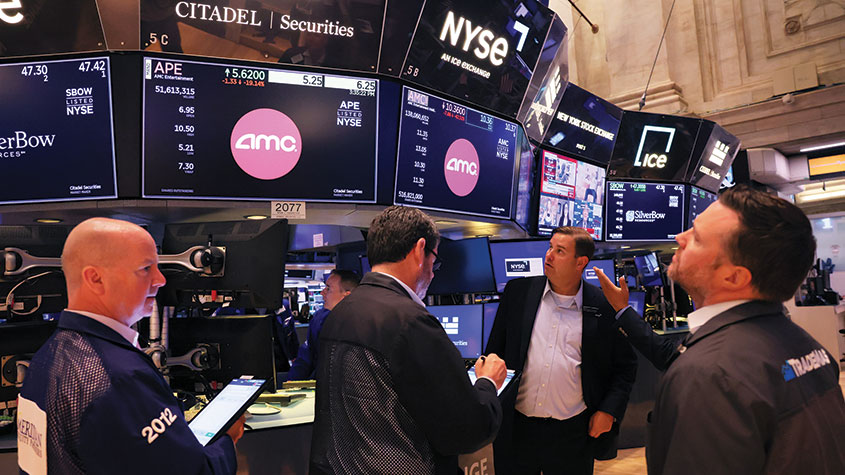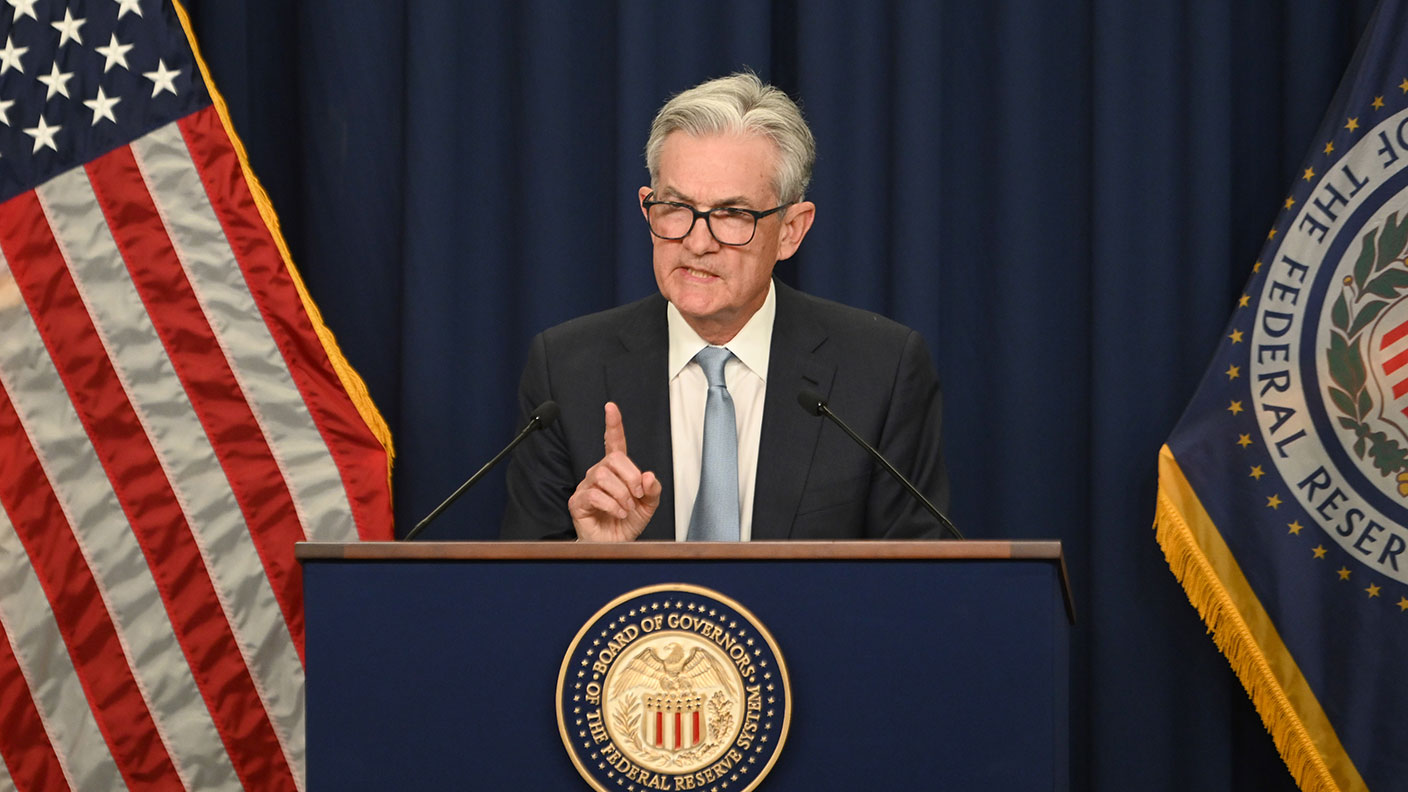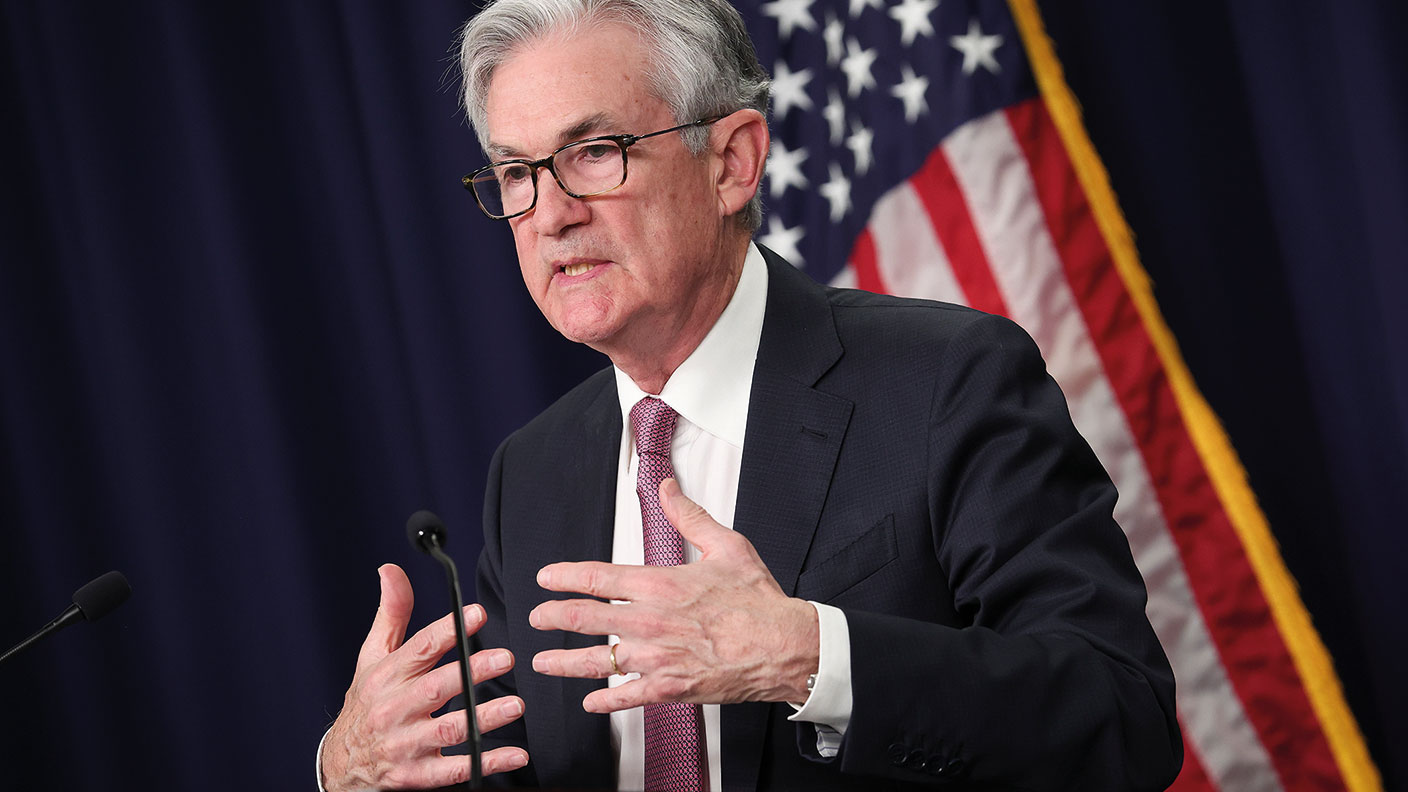Get the latest financial news, insights and expert analysis from our award-winning MoneyWeek team, to help you understand what really matters when it comes to your finances.
You are now subscribed
Your newsletter sign-up was successful
Want to add more newsletters?

Twice daily
MoneyWeek
Get the latest financial news, insights and expert analysis from our award-winning MoneyWeek team, to help you understand what really matters when it comes to your finances.

Four times a week
Look After My Bills
Sign up to our free money-saving newsletter, filled with the latest news and expert advice to help you find the best tips and deals for managing your bills. Start saving today!
Property
The bubble continues
Mortgage approvals slid to their lowest level in nearly a year in June, leaving them almost 20% below January's peak. April's introduction of the Mortgage Market Review, which forces banks to do affordability checks before lending, may be behind the drop. Yet houses in many parts of the UK remain historically expensive, and are absurdly overvalued in London. America, where prices have been rebounding for two years after falling to bargain-basement levels, remains more appealing for property investors. The same goes for German towns beyond the overheated big cities, such as Hamburg, Munich and Berlin.
Bonds
Still overpriced
MoneyWeek
Subscribe to MoneyWeek today and get your first six magazine issues absolutely FREE

Sign up to Money Morning
Don't miss the latest investment and personal finances news, market analysis, plus money-saving tips with our free twice-daily newsletter
Don't miss the latest investment and personal finances news, market analysis, plus money-saving tips with our free twice-daily newsletter
We haven't liked bonds for some time now, and we're not about to change our minds. One worry is that all the quantitative easing (QE), or money printing, of recent years will lead to inflation. Inflation is a tempting way for governments to reduce the real' value of their borrowings, as PFP Wealth Management's Tim Price notes, and it's always bad news for assets offering a fixed income. Bonds of all kinds also look very pricey compared to history. For example, yields on risky corporate debt (junk bonds') have fallen to the mid-single digits in recent years, as bond prices have soared. That's the kind of yield governments with good credit histories were offering before the financial crisis hit.
Precious metals
Gold climbs higher
Gold ticked up to a three-month high above $1,300 last week. Markets have begun to worry that the US Federal Reserve is too sanguine about a possible return of inflation. We suspect this theme won't go away in a hurry, as central banks are notoriously late to raise interest rates. A return of inflation in the next few years is a reason to continue holding 5%-10% of your portfolio in the yellow metalas insurance.
Silver is also a monetary metal, and to an extent can be expected to mimic gold's movements, but it tends to be a lot more volatile than the yellow metal.
Energy
Could US exports hit the oil price?
Brent crude-oil prices jumped by about 5% when the Iraq crisis flared up, but they've receded somewhat since. So far the fighting hasn't affected Iraqi production or exports, as these are based largely in the south of the country. If the conflict worsens and spreads it could have a major impact on supply, but for now a significant oil-price spike looks unlikely. Also, the US is showing signs of loosening its restrictions on exporting unrefined crude oil, as fracking boosts US supplies.
US natural gas prices, meanwhile, have hit their highest level since May because the warmer weather is increasing demand for air conditioning. Thanks to the shale-gas boom, production of the gas has grown by 35% between 2005 and 2013, lowering prices by 57% over the same period. But the long-term outlook is bullish, not least because more and more industries worldwide are being forced by environmental legislation to opt for the cleanest-burning fossil fuels.
Equities
Be very, very careful
Stockmarkets in the developed world keep hitting new highs and volatility is at pre-crisis lows. "Vast amounts of central-bank liquidity and fair-weather guidance on the distant prospects for [interest-rate hikes] have created this calm," as Deutsche Bank puts it. The market has long been ignoring lacklustre fundamentals, but the timing of a collapse is never easy to predict. But now that stocks are getting pricey, investors should choose their investments especially carefully. Japan remains our favourite developed market. It is still very reasonably valued and the government's latest stab at structural reforms was well received.
Emerging-market equities outstripped their developed counterparts performance-wise for the first quarter in six between April and June 2014. They should keep catching up, reckons Capital Economics. Relative valuations are appealing, suggesting that investors have factored in structural slowdowns in heavyweights such as India, Brazil, Russia and China. The gap between the forward price/earnings ratio in developing and developed stocks is at an eight-year high.
Commodities
Gathering strength
The global economy is slowly gathering strength, with the US rebounding from a first-quarter weather-related slump, and Chinese data ticking up last month. China's government has been trying to soften the fallout from a crackdown on credit-fuelled investment. This has helped industrial metals make gains, although plentiful supplies of many metals, notably copper, imply that prices are set to ease or stay stable in the next few months. Some miners remain appealing, given their previous falls to cheap levels.
The key determinant of agricultural commodity prices in the short term isthe weather: the price of corn, soybeans and wheat has been trending lower as good growing weather in America has boosted yield prospects. Longer term, a dwindling supply of arable land amid climate change and population growth should ensure that prices for these raw materials increase. But play the theme through fertiliser or farm-equipment companies soft-commodity prices are extremely volatile.
Get the latest financial news, insights and expert analysis from our award-winning MoneyWeek team, to help you understand what really matters when it comes to your finances.
MoneyWeek is written by a team of experienced and award-winning journalists, plus expert columnists. As well as daily digital news and features, MoneyWeek also publishes a weekly magazine, covering investing and personal finance. From share tips, pensions, gold to practical investment tips - we provide a round-up to help you make money and keep it.
-
 Average UK house price reaches £300,000 for first time, Halifax says
Average UK house price reaches £300,000 for first time, Halifax saysWhile the average house price has topped £300k, regional disparities still remain, Halifax finds.
-
 Barings Emerging Europe trust bounces back from Russia woes
Barings Emerging Europe trust bounces back from Russia woesBarings Emerging Europe trust has added the Middle East and Africa to its mandate, delivering a strong recovery, says Max King
-
 As China reopens, why pick an income strategy?
As China reopens, why pick an income strategy?Advertisement Feature Yoojeong Oh, Investment Manager, abrdn Asian Income Fund Limited
-
 A new dawn for Asian markets?
A new dawn for Asian markets?Advertisement Feature James Thom, Investment Manager, abrdn New Dawn Investment Trust plc
-
 The end of cheap money hits the markets
The end of cheap money hits the marketsNews Markets have swooned as central banks raise interest rates, leaving the era of cheap money behind.
-
 Are stocks back in a bull market or is this just a bear market rally?
Are stocks back in a bull market or is this just a bear market rally?News The S&P 500 index gained 17% between its June lows and 16 August, while the Nasdaq Composite rose more than 20%. So are stocks back in a bull market or is this just a brief rally before they resume their slide?
-
 Enjoy the bear market rally while it lasts
Enjoy the bear market rally while it lastsNews Investors seem to think that a weaker US economy will cool inflation and see the Fed relent on interest rate rises. But that optimism may be misplaced, with July’s stockmarket gains looking very much like a bear-market rally.
-
 The Fed really is fighting inflation – so don’t expect an early end to the bear market
The Fed really is fighting inflation – so don’t expect an early end to the bear marketAnalysis In an attempt to contain raging inflation, the Federal Reserve has raised US interest rates by 0.75 percentage points. And it’s going to keep on raising them till something breaks, says John Stepek.
-
 The Federal Reserve wants markets to fall – here’s what that means for investors
The Federal Reserve wants markets to fall – here’s what that means for investorsAnalysis The Federal Reserve’s primary mandate is to keep inflation down, and lower asset prices help with that. So, asks Dominic Frisby – just how low will stockmarkets fall?
-
 Interest-rate rises mean more pain for stocks
Interest-rate rises mean more pain for stocksNews Interest rates are rising around the world as central banks try to get inflation under control. That’s hitting stockmarkets – and there is more pain to come.

